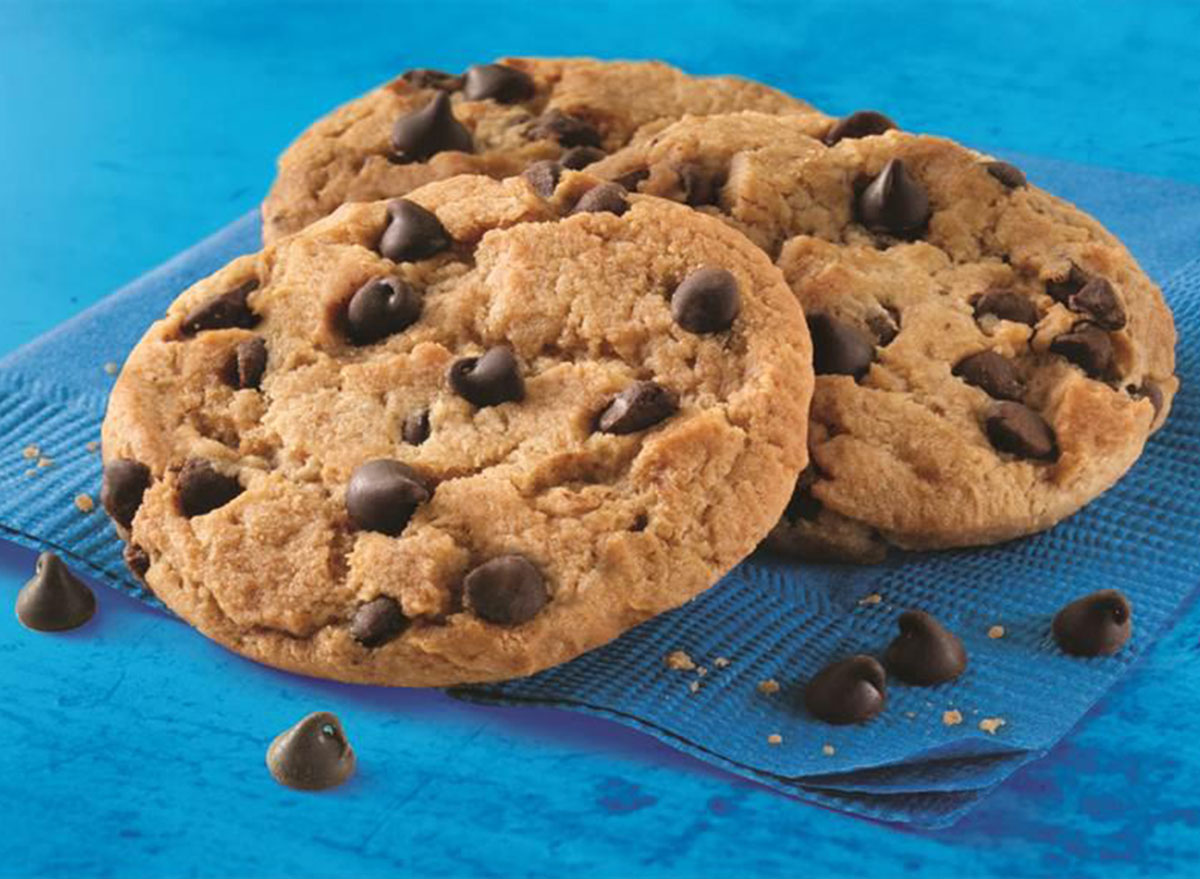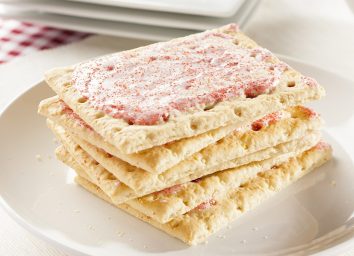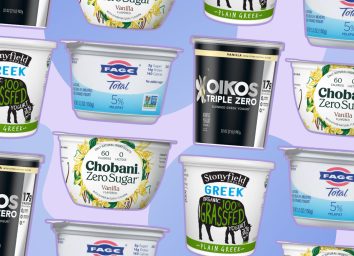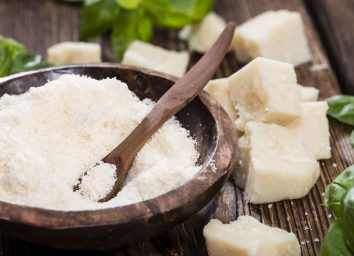10 Unhealthiest Food Brands on the Planet
According to the Centers For Disease Control and Prevention (CDC), about 40% of American adults are obese, and 60% of the calories we consume come from ultra-processed foods, a study in the BMJ journal found. While we're inclined to think that's a matter of causation rather than correlation, science agrees: a study in the American Journal of Clinical Nutrition found that ultra-processed food consumption was associated with a higher risk of being overweight and obesity.
So how did this happen? We can chalk it up to our supermarkets being riddled with not just unhealthy food, but some of the unhealthiest food brands on the planet.
To help you seek out the worst brands in the supermarket, we sifted through the unhealthiest snacks and the worst drinks to spotlight the repeat offenders. From the faux neon cheese you sandwich between sourdough for dinner and the breakfast treats you pop in the toaster in the morning, here are the worst grocery store culprits you should steer clear of. Instead, go ahead and stock up on any of The 7 Healthiest Foods to Eat Right Now.
Frito-Lay
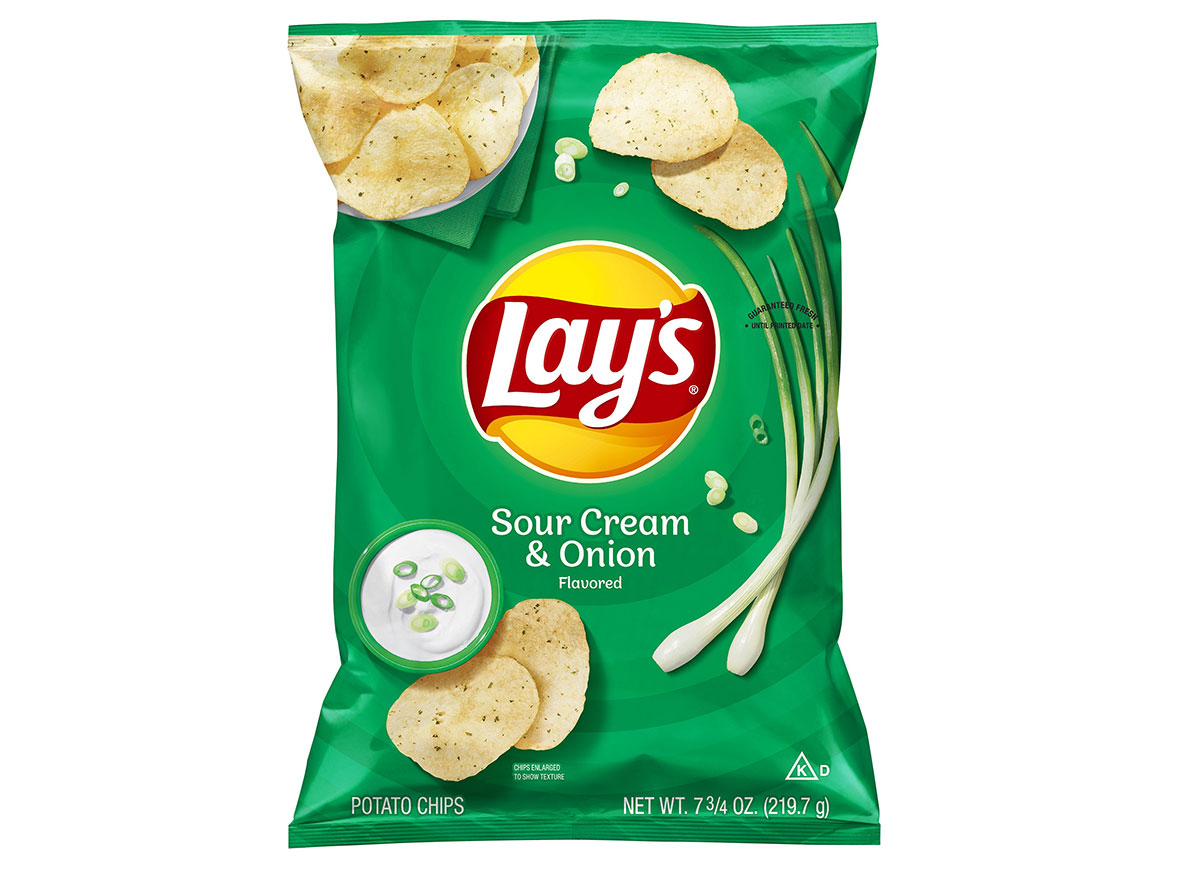
Lay's crunchy Sour Cream & Onion chips make for a delicious vessel for your homemade spinach dip, but we can't say its parent brand's first priority is health. Among the many brands that Frito-Lay owns—such as Lay's, Cheetos, Doritos, and Grandma's—we noticed a lot of sketchy and recurring food additives in their products. One of the worst offenders, artificial dyes, can be found in Doritos chips, Cheetos, and Flamin' Hot Funyuns. A study in the journal Neurotherapeutics discovered that synthetic food dyes may contribute to ADHD in children and trigger a histamine response.
Another popular additive found in salty snacks, monosodium glutamate (or MSG), is featured on the ingredient lists of the majority of Frito-Lays' savory snacks. The flavor enhancer has been linked to CNS disorder, obesity, disruptions in adipose tissue physiology, hepatic damage, CRS, and reproductive malfunctions, according to a study in EXCLI Journal.
Keebler
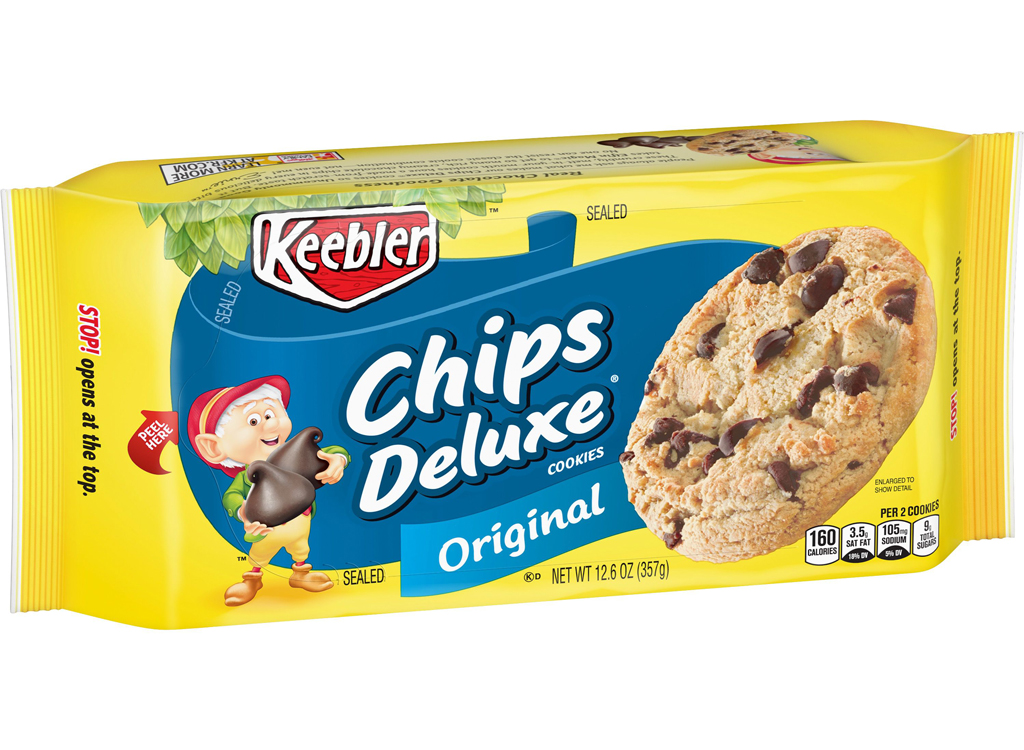
While the Keebler elves may take pride in crafting "uncommonly made, uncommonly good" treats, many of the ingredients used are pretty uncommon in nature. You can spot a slew of artificial dyes, inflammatory palm oil, and corn syrup in the Chips Deluxe line. Grab a pack of Coconut Dreams cookies instead of supporting your local Girl Scouts, and you'll ingest TBHQ, a preservative that's been shown to cause an allergic reaction, Michigan State University researchers found.
Powerbar
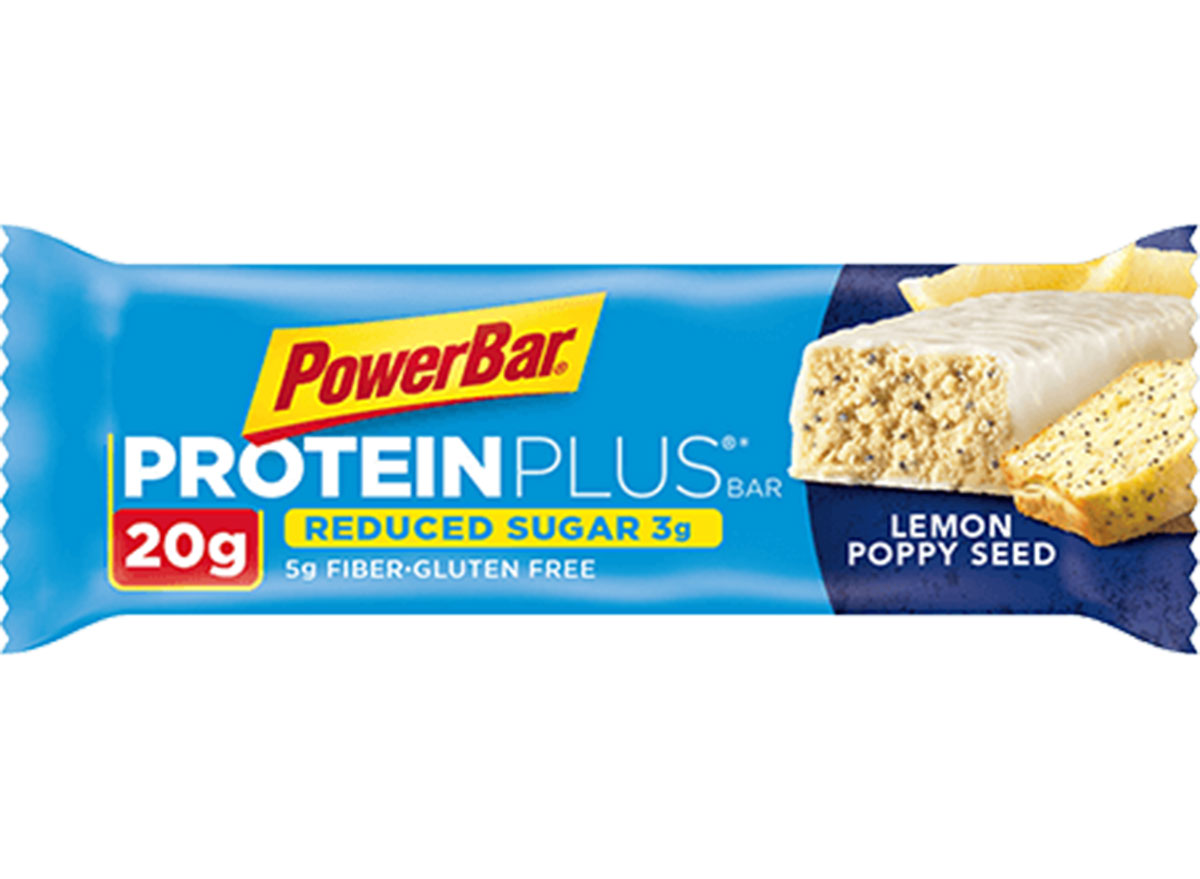
This popular post-workout protein bar's ingredient list looks more like a lab experiment than a snack that's meant to replenish your energy stores and build muscle. Powerbar's Protein Plus line has a lot more than just protein, as the name implies. At first glance, you may be lured into unwrapping the chocolate peanut butter flavor, which packs in 20 grams of the muscle-maintaining macro; but, a closer look warrants you to avoid noshing. The bars are laced with a handful of different types of sugar, including fructose, which has been shown to cause dangerous visceral fat by The Endocrine Society, as well as maltitol syrup, cane invert syrup, and regular ol' sugar. If your goal is to lean out, quit tossing this bar into your gym bag.
Coca-Cola
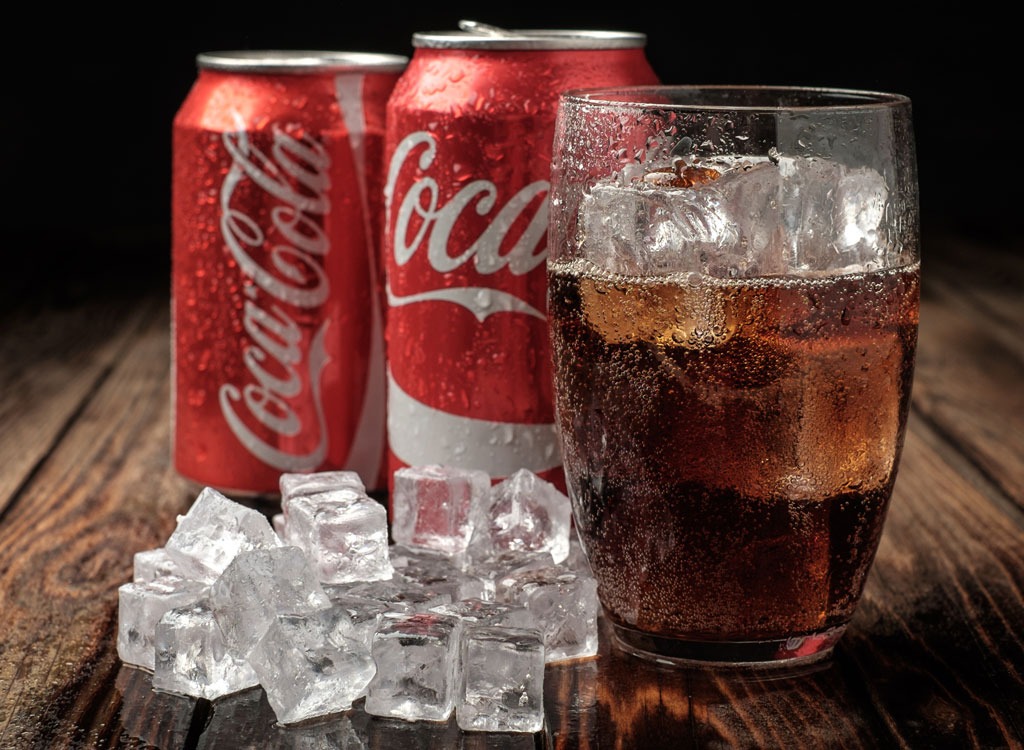
One 12-ounce can packs in a staggering 39 grams of sugar—that's nearly six teaspoons of the sweet stuff. Choose the Diet variety, and you won't be doing your body any favors either. A study of over 2,000 participants published in Current Developments in Nutrition found that while sugar-sweetened beverages like soda contribute to the diabetes epidemic, diet sodas do not lower one's risk. Another BMJ study found that when participants drank one serving of an artificially-sweetened beverage, their type 2 diabetes risk increased by a whopping 25% in comparison to an 18% increase that sugar-sweetened drinks caused.
PepsiCo.

Although PepsiCo. owns many snack brands that cater to various cravings, we did notice some glaring similarities across the food conglomerate's product board. Artificial colors are found in PepsiCo.'s salty snack brands such as Doritos and Cheetos, while drinks such as Diet Lipton Iced Tea mix, and Starbucks' bottled Iced Skinny Caramel Macchiato are sweetened with ace-K, an artificial sweetener that can alter the gut microbiome and induce inflammation, a study in PLoS One found. And when it comes to real sugar, a can of Pepsi soda contains more sugar than Naked's healthy-sounding Mighty Mango smoothie (another brand owned by PepsiCo.).
However, the food giant has become more cognizant of consumers' growing demand for healthy products and launched wholesome lines such as Kevita, a probiotic-rich kombucha, and Bubly, a sparkling water line that will kick your soda addiction to the curb.
Mars Inc.
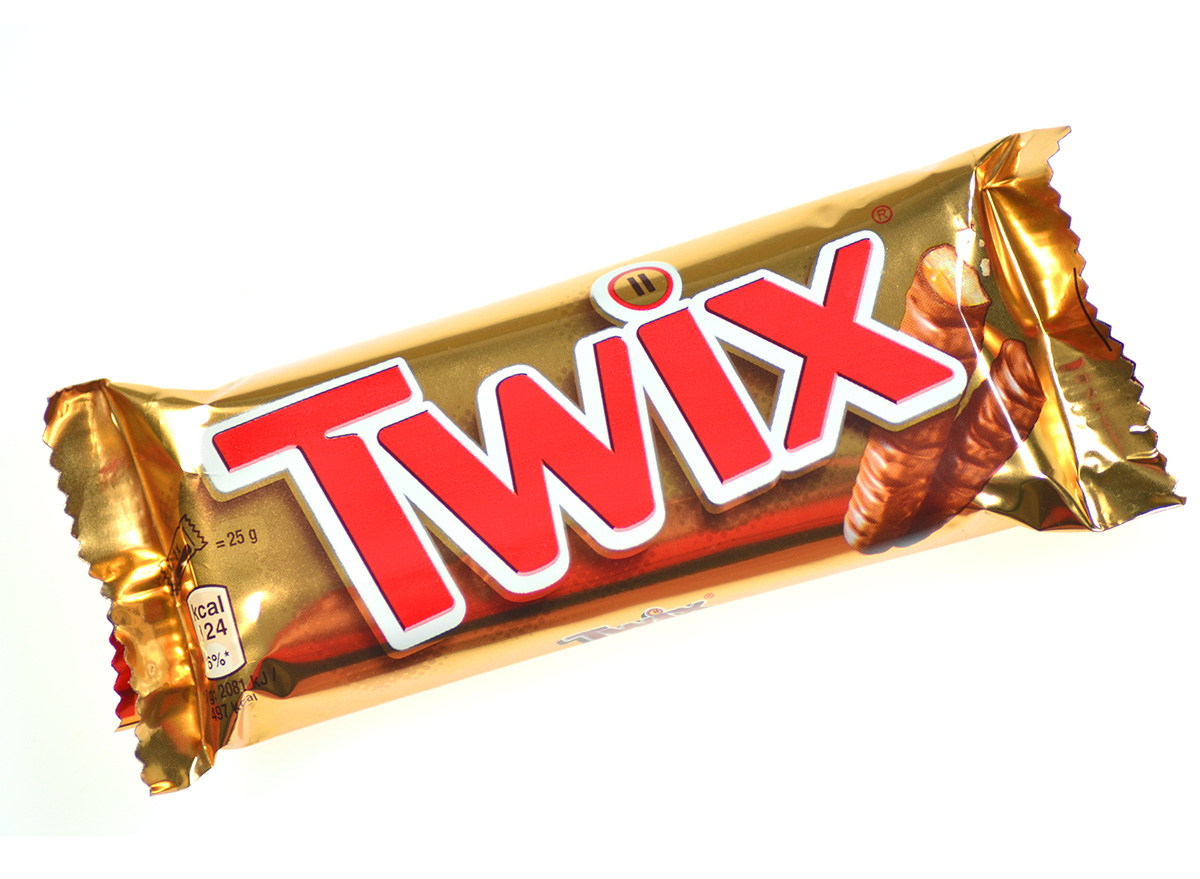
The hedonic mastermind behind M&M's, Milky Way, Snickers, Twix, and Starburst, among others, packs in a boatload of Not That! ingredients. The confections contain hydrogenated oils (a source of saturated fat), TBHQ, artificial flavors, artificial dyes, and corn syrup. On the upside, Mars Inc. is the proud owner of KIND bars—our favorite nutrition bars made of real foods.
Nabisco
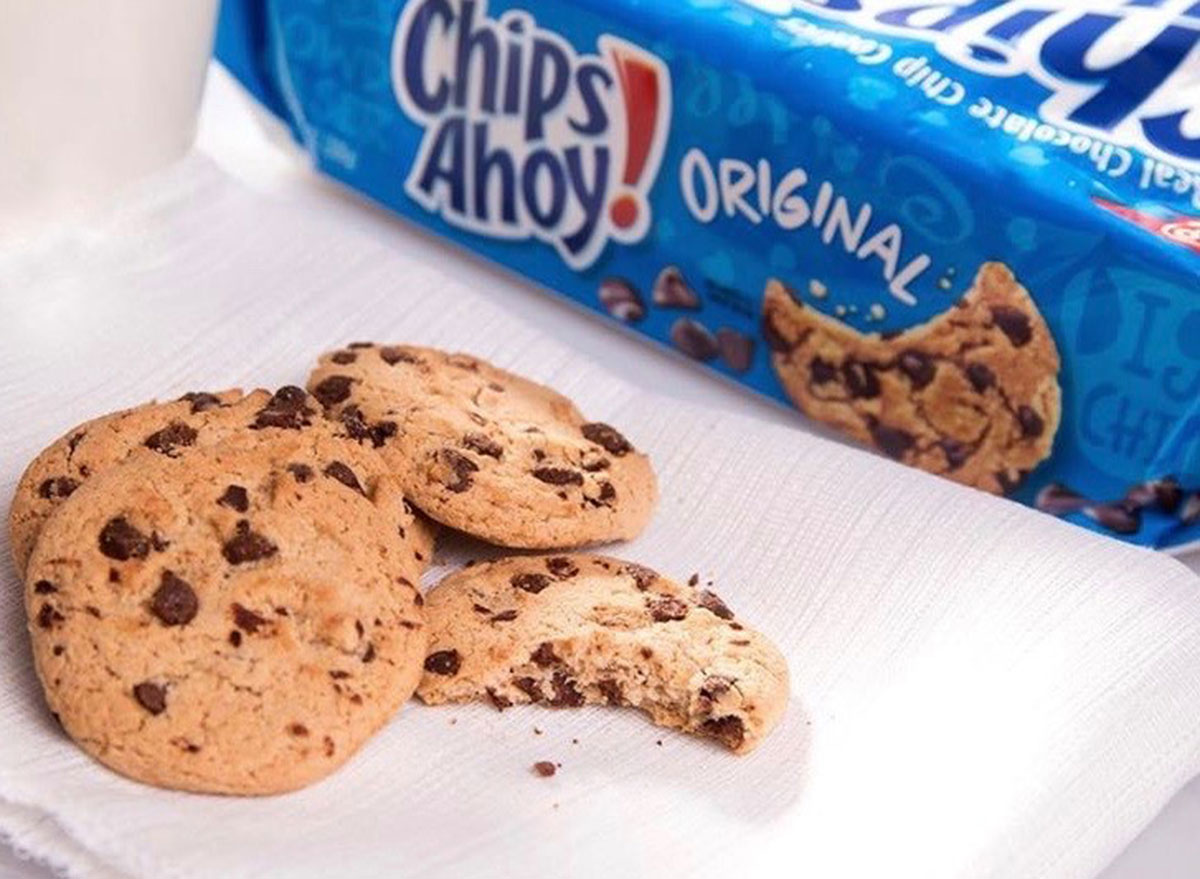
The iconic Oreo comes in a ton of different flavors, from Birthday Cake to Red Velvet and derivatives from Oreo Churros to Fudge Cremes. However tasty these sweet snacks may sound, they're riddled with artificial flavors, inflammatory palm oil, sugar, and phosphates, which may cause kidney disease, a 2017 study found.
Nabisco is also the parent of your go-to chocolate chip cookie, yet Chips Ahoy isn't as sweet as it's baked up to be. Among the common culprits that you'll find in many commercial cookies (hydrogenated oil, high fructose corn syrup, and artificial flavors) this chocolate-studded midnight vice contains caramel color. Johns Hopkins Bloomberg School of Public Health found that the additive's manufacturing process may trigger the formation of 4-methylimidazole (4-MEI), a possible human carcinogen. You're better off skipping the sweet sleeves.
Looking for more helpful tips? Your ultimate restaurant and supermarket survival guide is here!
Hershey's
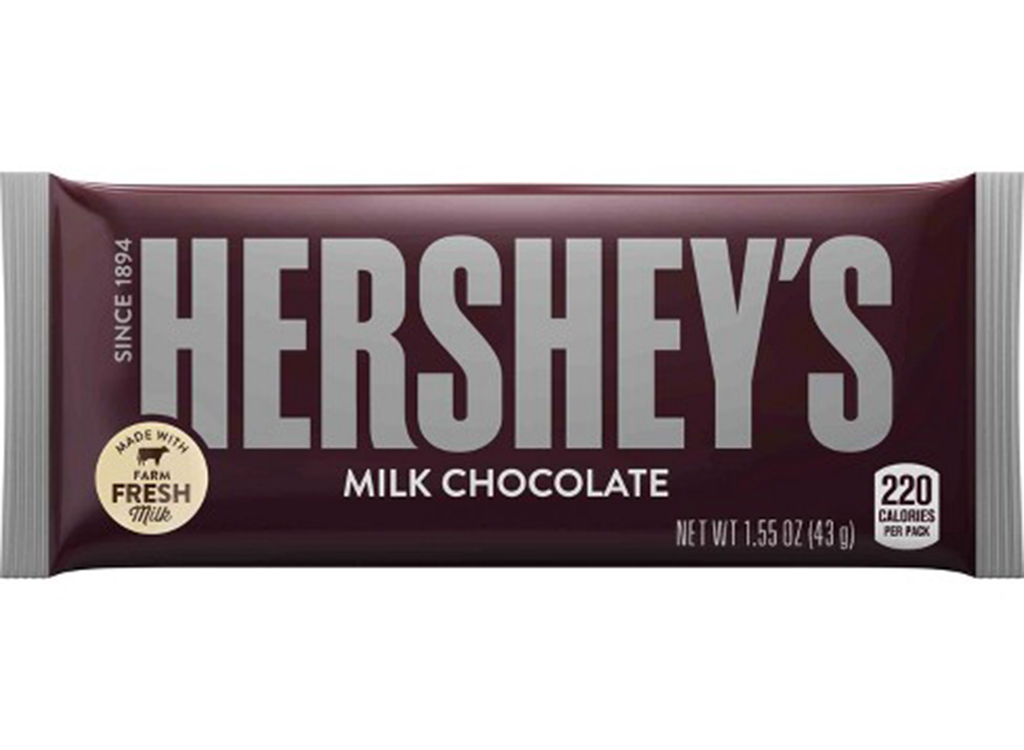
Whether you're unwrapping a classic Hershey's Kiss or a Milk Chocolate Bar with Reese's Pieces or Cookie Layer Crunch bar, the first ingredient you'll sink your teeth into is sugar. Pick any of their other sweet snacks, and you'll likely fall victim to hydrogenated oils, corn syrup, and artificial flavors as well. And if you're trying to relive your childhood days by stirring up a glass of chocolate milk, keep in mind that nostalgia comes with some serious side effects. The classic syrup contains high fructose corn syrup as the first ingredient and potassium sorbate, a preservative deemed genotoxic in the journal Toxicology In Vitro. Opt for the sugar-free version, and you'll save yourself 40 calories and avoid the corn syrup, but you'll sip a dose of ace-K and sucralose, an artificial sweetener that causes chronic inflammation according to Frontiers in Physiology. Pick your poison.
Kraft
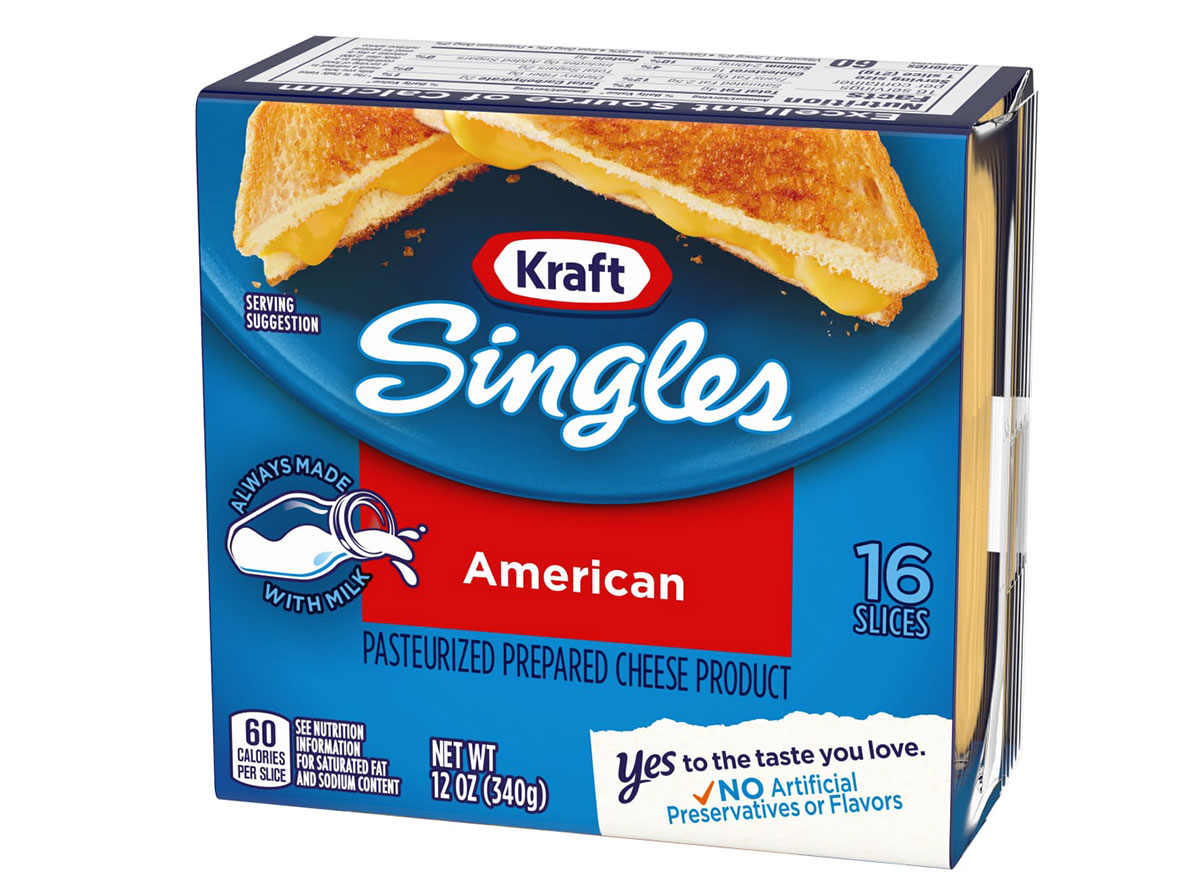
It's no surprise that Kraft made our list of unhealthiest food brands. The American cheese singles are notorious for their rancid facade: the neon slices aren't real cheese, but actually pasteurized cheese product. The Food and Drug Administration (FDA) prohibits Kraft from labeling it "cheese" because it doesn't contain at least 51% real cheese. So what's in it? Calcium phosphate, modified food starch, and natamycin, an anti-fungal agent that also is used to treat fungal eye infections. Besides diner grilled cheeses, you'll find this pseudo cheese in Kraft's mac and cheese products.
Besides for the vibrant cheez slices, you'll find sketchy additives in Kraft's dressings, which pack in ingredients like high fructose corn syrup, modified food starch, and artificial dyes. Even the healthy-sounding salad dressings such as Balsamic Vinaigrette are tainted with inflammatory soybean oil. And if you're dousing your flapjacks with Kraft's pancake syrup, know that two tiny packets contain as much sugar as a can of Coke!
Pillsbury
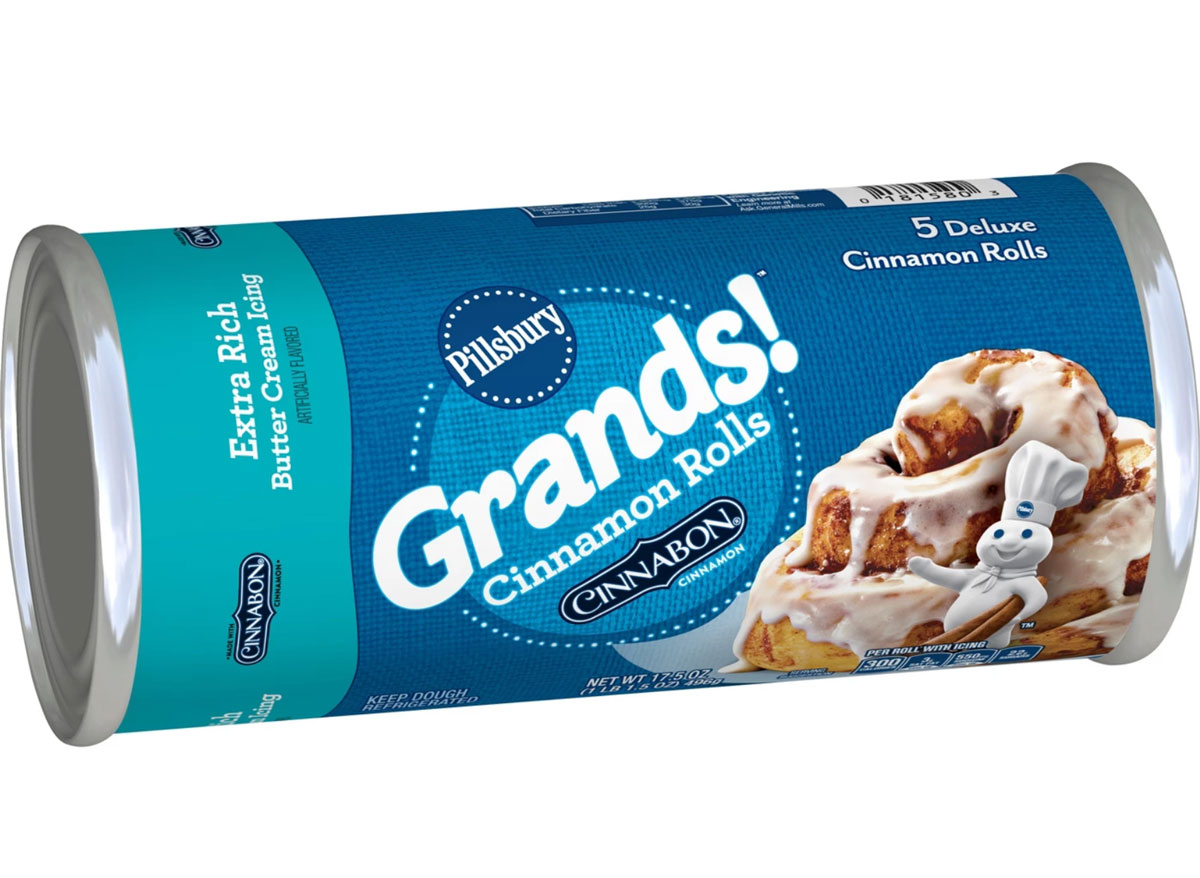
From crescent rolls to pie crusts to cookie dough to cinnamon buns, Pillsbury is responsible for some of the unhealthiest foods on the planet. The food corp injects its American classics with hydrogenated and inflammatory oils, TBHQ, artificial flavors, and potassium sorbate. And the kid-favorite Toaster Strudels aren't any better than the twistable cans you make breakfast treats with. The laundry list of ingredients aside, the strawberry Toaster Strudel packs in 20 grams of sugar and almost 400 calories per two pastries. We bet you'll still be hungry after biting into this nutritionally-devoid treat.
